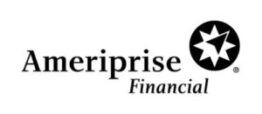
Stuart Horowitz, of Coral Springs, Florida, a stockbroker with Securities America, Inc., was fined $100,000.00 and suspended for one year from associating with any Financial Industry Regulatory Authority (FINRA) member firm in any capacity after consenting to findings that he made unsuitable investment recommendations to customers. Letter of Acceptance, Waiver and Consent, No. 2013036692001 (Feb. 23, 2016).
According to the AWC, from 2004 through 2009, at a time when Horowitz was associated with NFP Securities, Inc., he sold investors securities interests in an unregistered limited partnership, the CSMIF Fund. Apparently, the Fund was geared towards accumulating interest payments via subordinated notes that the Fund purchased, where such notes were designed for financing commercial and residential projects in residential real estate development. These four-year notes, according to the AWC, paid twelve percent returns on a fixed basis, and enabled investors in the Fund to redeem shares at maturity or continue the investment for an additional four-year period.
FINRA stated that in 2009, the CSMIF Fund, in an effort to raise additional funds, provided their limited partners the ability to convert investments into Preferred Notes. This apparently required a contribution of thirty percent capital in order for the limited partners to gain a more secure stake in the investment, but required a longer holding period and paid a return of ten percent rather than twelve percent.
The AWC stated that Horowitz was eventually informed by NFP that due to concerns about the Fund’s viability, representatives such as Horowitz were no longer able to sell the Notes to customers of the firm. Apparently, Horowitz found out about NFP’s restrictions shortly after becoming associated with Securities America, Inc. Subsequently, as the AWC stated, Horowitz requested that Securities America staff allow him the approval to sell the Notes, in which Horowitz claimed that he needed to be approved quickly due to a short investment window despite there being no deadline on the Notes for conversions.
The AWC further stated that Horowitz instructed his customers not to directly participate in the Notes conversion with the issuer, even though such customers were able to do so without involvement from Securities America or Horowitz. Securities America reportedly stated to Horowitz that the firm was in the process of ascertaining due diligence concerning the Notes prior to approving Horowitz to sell the Notes through the firm. This apparently caused Horowitz to seek approval from Securities America to sell the Notes despite there being no completed due diligence regarding the Notes. The firm reportedly acquiesced to Horowitz engaging in such sales to the Fund’s existing investors.
The AWC reported that on March 20, 2009, Horowitz recommended that his entire customer base invest in the Fund, in which Horowitz claimed that he had conducted a comprehensive analysis of the Note offering and aforementioned conversion option. FINRA found that prior to Horowitz’s recommendation to customers in this regard, Horowitz did nothing more than review the offering documents provided by the Preferred Notes and other representations that the Fund made; there was no due diligence report completed by Securities America, Inc.
Apparently, Horowitz told customers in an e-mail that they should make the thirty percent contribution of capital in order to ascertain a secure position with regard to their investment, and that the CSMIF fund was not at risk of discontinuing the Fund’s distribution to investors. Horowitz purportedly claimed to investors that there was adequate collateral to cover the investors’ purchases. FINRA claimed that Horowitz made these remarks despite being aware that there was reason to doubt that the issuer’s claims, which his statements were based upon.
Of particular concern to FINRA was that Horowitz ignored several red flags concerning the CSMIF Fund viability as well as the Notes. Horowitz was reportedly aware that in June 2008, the Fund had to foreclose on affiliates resulting from the inability of the affiliates to makes payments that were required. Additionally, in February 2009, Horowitz was reportedly advised that the Fund had been dishonest regarding the due diligence process engaged in by NFP; that the real estate assets which the Fund depended on had not performed, were illiquid, and had to be sold at decreased prices in order to effect distributions.
Further, FINRA noted that in March of 2009, Horowitz was aware that the Fund planned to reduce distributions from twelve to six percent, which were owed to the Fund’s existing limited partner holders. FINRA also noted that the Fund provided insufficient data to Horowitz regarding the Fund’s portfolio of real estate when Horowitz requested such data. Finally, Horowitz was apparently aware that the Fund, in June of 2009, stopped making distributions to the Fund’s existing limited partner holders.
FINRA found that Horowitz, despite the aforementioned red flags, did not notify Securities America. The AWC stated that Horowitz persisted in making recommendations to customers regarding the conversion to the Notes, despite his cognizance of the growing problems faced by the Fund. The AWC stated that staff of Horowitz even processed five customers’ conversions, totaling $133,810.00, after Horowitz knew that the aforementioned distributions by the Fund had ceased in June of 2009.
Particularly, from March 2009 through July 2009, Horowitz was responsible for nearly $8,000,000.00 in conversion of existing customers’ conversion to the Notes, in which customers had made estimated contributions of $2,500,000.00 in the process. Horowitz reportedly received in excess of $200,000.00 in commissions associated with the Notes conversions. Apparently, the Fund started to make late payments to investors in July 2009. By October 2009, the Fund completely stopped making payments.
FINRA ultimately found that Horowitz did not have an adequate basis of making recommendations to customers regarding the Notes conversion. As such, FINRA found that Horowitz’s conduct was violative of FINRA Rule 2010 and NASD Rule 2310.
Public disclosure records via FINRA’s BrokerCheck reveal that Horowitz has been subject to thirty-nine (39) disclosure incidents. Particularly, from June 29, 2009, through June 7, 2016, thirty-seven of Horowitz’s disclosure incidents involved customer complaints. Four of the thirty-seven customer disputes are currently pending.
For example, one June 7, 2016, Horowitz was named in a pending customer dispute, in which the customer has requested $359,215.00 in damages amid allegations against Horowitz for making unsuitable investment recommendations. On October 15, 2015, Horowitz became subject to a pending customer dispute, in which the customer requested $1,000,000.00 after alleging that Horowitz made misrepresentations to the customer, and effected unsuitable investment purchases for investors in connection with alternative investments.
On March 31, 2015, Horowitz became subject to a pending customer dispute, in which the customer requested $300,000.00 in connection with allegations of fraud, breach of contract, breach of fiduciary duty, and unsuitability. Horowitz also faces a pending customer dispute from March 20, 2015, in which the customer has alleged that Horowitz failed to supervise, made misrepresentations, and made unsuitable investment recommendations. Customer disputes during the aforementioned time frame, many of which Horowitz has settled, reference allegations against Horowitz of unsuitability, misrepresentation, breach of fiduciary duty, breach of contract, negligence, overconcentration of investor assets, and fraud.
The information contained herein has been obtained from reliable sources however may not be accurate and is not guaranteed by us. Readers are encouraged to undertake their own independent investigation and evaluation of the relevant facts. All claims and allegations are subject to adjudication, decisions may be subject to appeal, and no inference is intended, nor should any inference be made from any information contained herein from any source.
This posting and the information on our website is for general information purposes only. This content should be not considered legal advice, and any responses, comments, e-mails, other communications do not form any attorney client relationship. Attorney Advertisement. See Important Disclaimer
Guiliano Law Group
Our practice is limited to the representation of investors. We accept representation on a contingent fee basis, meaning there is no cost to you unless we make a recovery for you. There is never any charge for a consultation or an evaluation of your claim. For more information, contact us at (877) SEC-ATTY.
For more information concerning common claims against stockbrokers and investment professionals, please visit us at securitiesarbitrations.com
To learn more about FINRA Securities Arbitration, and the legal process, please visit us at securitiesarbitrations.com








